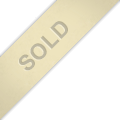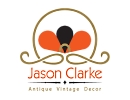Contact Seller
Jason Clarke Antiques
Tel07815 046645Please quote Antiques Atlas.


 Brass Theodolite
Brass Theodolite
 Mahogany Microscope Slide Box / Glass Slides 1900
Mahogany Microscope Slide Box / Glass Slides 1900
 19th C Surveyors Metamorphic Instrument Box /T able
19th C Surveyors Metamorphic Instrument Box /T able
 Large Set of 8 Vintage Lab Sieves, English, Brass
Large Set of 8 Vintage Lab Sieves, English, Brass
 Vintage Scholar's Drawing Set, French, Brass
Vintage Scholar's Drawing Set, French, Brass
 Antique Cased Draughtsman's Set, English, Drawing
Antique Cased Draughtsman's Set, English, Drawing
 Antique Scholar's Microscope, English, Brass
Antique Scholar's Microscope, English, Brass
 Antique Draughtsman's Tool Set, English
Antique Draughtsman's Tool Set, English
 Optician's Set Of Test Equipment In Case
Optician's Set Of Test Equipment In Case
 Antique Wrap Reel Machine, English, Factory
Antique Wrap Reel Machine, English, Factory
 Vintage Drawing Instrument Set, German, Tools
Vintage Drawing Instrument Set, German, Tools
 Vintage Draughtsman's Set, German, Drawing Tools
Vintage Draughtsman's Set, German, Drawing Tools
Non UK callers :
+44 7815 046645
Mid Victorian Spectroscope Set by John Browning


For sale, a rare mid Victorian spectroscopy outfit by John Browning of 63 The Strand, London.
Clearly described and engraved in Browning’s 1878 publication, “How to Work with The Spectroscope”. This very original and mahogany cased spectroscope was sold by Browning as, “The Model Spectroscope” and is describes as follows:
“The instrument has two dense glass prisms, two eyepieces, rack motion to the telescope, and tangent screw motion to Vernier. It will widely separate the D lines.”
The instrument retains one hundred percent of its original lacquer and looks to have been kept pristine in its fitted case for most of its existence. The case also contains a secondary solar eyepiece or Herschels wedge with two filtered eyepieces which remains in much the same condition. Both are engraved to John Browning, London.
It is further accompanied by an original Browning induction coil “for working induction tubes, giving the spectra of the gases, or for obtaining the spectra of the metals by the aid of electric spark.”
Both the induction coil and the Model spectroscope are the subject of an engraving in Browning’s publication (please see images) where the entire set up for the period can be envisaged. The instruments are pictured alongside a rack of Bunsen battery cells to power the induction coil and a single leyden jar to assist in creating the spark required to measure the spectrum of a given material.
An interesting and scarce set from a pioneer of spectroscopy.
John Browning (1831 – 1925) came from a line of famous instrument makers dating back to the mid-Eighteenth Century. His ancestors William & Samuel Browning along with William Spencer and Ebeneezer Rust were all apprenticed to Richard Rust. The result was the formation of the famous Georgian company of Spencer, Browning & Rust, a partnership which remained in place until 1840 albeit with varying family members over time. John Browning’s Father William was a nautical instrument maker and although his son John was intended for a medical career, he was drawn back to instrument making during the late 1840’s at which time he also attended The Royal College of Chemistry. In 1856, Browning assumed control of his Father’s business (now named Spencer Browning & Co) at the Minories in London and just six years later was amongst the exhibitors of the 1862 London Exhibition where he was merited for aneroid barometer designs. His relation Samuel J Browning who had taken over the famous Portsmouth business of George Stebbing had also been merited at the earlier 1851 Great Exhibition before him.
After his 1862 success, Browning patented numerous instruments and is known to have supplied spectroscopes to the photographer William Henry Fox Talbot, his specialism in this field gave him opportunity to present his work at The Royal Society in 1872. In the same year the company also conducted a move of premises to 63 The Strand at which point it is likely that the name was changed solely to John Browning. He was commissioned a year later to install the first electric light in London, provided at The Guildhall on the occasion on a visit by the Shah of Persia.
Amongst other publications on astronomy and general optics, his “How to Work with the Spectroscope” was brought out in 1878 and went through numerous editions, a cursory glance of the initial publication and its accompanying price list provides a huge array of instruments and accessories related to the subject.
Browning was evidently a perfectionist and a workaholic, the sheer breadth of his involvement in varying scientific subjects is breathtaking, besides his work in Spectroscopy, he supplied instruments to The Government, to The Royal Observatory and numerous important scientists while also having time to be a founding member of the British Optical Association, a member of the Aeronautical Society of Great Britain, The Meteorological Society and The Royal Institution.
The Company was eventually sold out to W Watson and Son in 1900 leaving Browning to enjoy a surprisingly lengthy, twenty five year retirement. He died in Cheltenham in 1925.
Circa 1875
SellerJason Clarke Antiques
View all stock from
Jason Clarke Antiques

 Private dealer
Private dealer
By appointment only
Newbury
Berkshire
Tel : 07815 046645
Non UK callers : +44 7815 046645
Clearly described and engraved in Browning’s 1878 publication, “How to Work with The Spectroscope”. This very original and mahogany cased spectroscope was sold by Browning as, “The Model Spectroscope” and is describes as follows:
“The instrument has two dense glass prisms, two eyepieces, rack motion to the telescope, and tangent screw motion to Vernier. It will widely separate the D lines.”
The instrument retains one hundred percent of its original lacquer and looks to have been kept pristine in its fitted case for most of its existence. The case also contains a secondary solar eyepiece or Herschels wedge with two filtered eyepieces which remains in much the same condition. Both are engraved to John Browning, London.
It is further accompanied by an original Browning induction coil “for working induction tubes, giving the spectra of the gases, or for obtaining the spectra of the metals by the aid of electric spark.”
Both the induction coil and the Model spectroscope are the subject of an engraving in Browning’s publication (please see images) where the entire set up for the period can be envisaged. The instruments are pictured alongside a rack of Bunsen battery cells to power the induction coil and a single leyden jar to assist in creating the spark required to measure the spectrum of a given material.
An interesting and scarce set from a pioneer of spectroscopy.
John Browning (1831 – 1925) came from a line of famous instrument makers dating back to the mid-Eighteenth Century. His ancestors William & Samuel Browning along with William Spencer and Ebeneezer Rust were all apprenticed to Richard Rust. The result was the formation of the famous Georgian company of Spencer, Browning & Rust, a partnership which remained in place until 1840 albeit with varying family members over time. John Browning’s Father William was a nautical instrument maker and although his son John was intended for a medical career, he was drawn back to instrument making during the late 1840’s at which time he also attended The Royal College of Chemistry. In 1856, Browning assumed control of his Father’s business (now named Spencer Browning & Co) at the Minories in London and just six years later was amongst the exhibitors of the 1862 London Exhibition where he was merited for aneroid barometer designs. His relation Samuel J Browning who had taken over the famous Portsmouth business of George Stebbing had also been merited at the earlier 1851 Great Exhibition before him.
After his 1862 success, Browning patented numerous instruments and is known to have supplied spectroscopes to the photographer William Henry Fox Talbot, his specialism in this field gave him opportunity to present his work at The Royal Society in 1872. In the same year the company also conducted a move of premises to 63 The Strand at which point it is likely that the name was changed solely to John Browning. He was commissioned a year later to install the first electric light in London, provided at The Guildhall on the occasion on a visit by the Shah of Persia.
Amongst other publications on astronomy and general optics, his “How to Work with the Spectroscope” was brought out in 1878 and went through numerous editions, a cursory glance of the initial publication and its accompanying price list provides a huge array of instruments and accessories related to the subject.
Browning was evidently a perfectionist and a workaholic, the sheer breadth of his involvement in varying scientific subjects is breathtaking, besides his work in Spectroscopy, he supplied instruments to The Government, to The Royal Observatory and numerous important scientists while also having time to be a founding member of the British Optical Association, a member of the Aeronautical Society of Great Britain, The Meteorological Society and The Royal Institution.
The Company was eventually sold out to W Watson and Son in 1900 leaving Browning to enjoy a surprisingly lengthy, twenty five year retirement. He died in Cheltenham in 1925.
Circa 1875
Price The price has been listed in British Pounds.
Conversion rates as of 18/DEC/2025. Euro & Dollar prices will vary and should only be used as a guide.
Always confirm final price with dealer. Sold
Category Scientific Antiques
Period Mid Victorian Antiques
Material Brass
Origin English
Item code as542a586
Status Sold
£0 
$0.00 
€0.00 

$

€

Conversion rates as of 18/DEC/2025. Euro & Dollar prices will vary and should only be used as a guide.
Always confirm final price with dealer. Sold
View all stock from
Jason Clarke Antiques

 Private dealer
Private dealerBy appointment only
Newbury
Berkshire
Tel : 07815 046645
Non UK callers : +44 7815 046645
You may also be interested in
 Brass Theodolite
Brass Theodolite
 Mahogany Microscope Slide Box / Glass Slides 1900
Mahogany Microscope Slide Box / Glass Slides 1900
 19th C Surveyors Metamorphic Instrument Box /T able
19th C Surveyors Metamorphic Instrument Box /T able
 Large Set of 8 Vintage Lab Sieves, English, Brass
Large Set of 8 Vintage Lab Sieves, English, Brass
 Vintage Scholar's Drawing Set, French, Brass
Vintage Scholar's Drawing Set, French, Brass
 Antique Cased Draughtsman's Set, English, Drawing
Antique Cased Draughtsman's Set, English, Drawing
 Antique Scholar's Microscope, English, Brass
Antique Scholar's Microscope, English, Brass
 Antique Draughtsman's Tool Set, English
Antique Draughtsman's Tool Set, English
 Optician's Set Of Test Equipment In Case
Optician's Set Of Test Equipment In Case
 Antique Wrap Reel Machine, English, Factory
Antique Wrap Reel Machine, English, Factory
 Vintage Drawing Instrument Set, German, Tools
Vintage Drawing Instrument Set, German, Tools
 Vintage Draughtsman's Set, German, Drawing Tools
Vintage Draughtsman's Set, German, Drawing Tools








